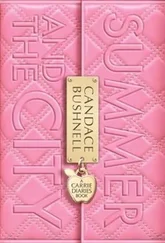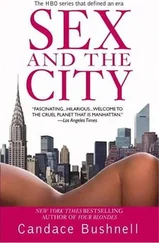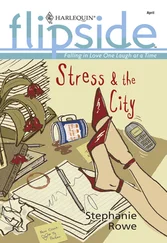For women, Tomas soon proved irresistible — although he never had a dog in that race, either. From the moment he turned eighteen, girls and women swarmed around him, all of whom he treated with the utmost courtesy whether he slept with them or not; each of whom was convinced, at least for a time, that she would provide the exception that proved the rule; none of whom made a dent in his detachment.
I don’t know when it occurred to me that Tomas’s experience of early loss — parents, language, even homeland — didn’t seem a sufficient explanation for why he was as he was; rather, it began to seem that these losses were the objective correlative to a condition whose origins lay elsewhere. Then one day I realized that the distance he kept was not from us, it was from himself, its character determined in the absolute long ago and far away, and I remember thinking then (as I think now) that Tomas was one of those people destined almost from birth to remain a stranger to himself.
What we were witnessing as children was our first glimpse of the kind of inner remoteness that, in later life, one recognizes as primal in its very nature. In the years that followed life in the Bronx, I and nearly every woman I knew fell in love at least once with a Tomas, in each case in the same vain hope that ours would be the warmth that penetrated the cold at the center; vain because no amount of love can defeat the tsunami force of that primitive melancholia.
None of this could we have understood as children, but all of it we had sensed and, quite properly, experienced as a threat to our own humanity. As we had all come from sturdy peasant stock — much of it of the superstition-prone variety — it was quite remarkable that we had struggled to survive the threat by seducing it rather than beating it off with a stick.
Once, in our forties, Tomas said to me, “I’ve always had a funny effect on people. Like there’s something in me they want to get at, some secret they think I’m keeping from them. I’ve never known what it’s all about. I’ve tried to tell them, especially the women, Hey, babe, what you see is what I got. That’s all there is. They don’t believe me. They always think there’s something more. But there ain’t. Believe me. There ain’t .”
I did believe him, and I tried to explain not only his effect on us as children, but how it had taken me half a lifetime to understand it — and then, I said, it was only because as the years passed I’d often glimpsed that dangerous disconnect at work in myself. Poor beast, he didn’t know what on earth I was talking about. He stood there staring at me as of old.
* * *
Early on a Friday evening in spring, cars coming from three directions are halted in the middle of Abingdon Square, in their midst a rat running frantically back and forth. A man turns the corner nearest to where I am standing, mesmerized. He is in his forties, wearing khaki shorts and a bright blue camp shirt and carrying a Whole Foods shopping bag in each hand. His brown thatch is graying, his features painfully delicate; his eyes blink worriedly behind designer glasses.
“What is it?” he cries at me.
His eyes follow my pointing finger.
“Oh,” he says wearily. “A neur-rotic rat.”
“Or else a prelude to the plague,” I say.
“Now there’s an only slightly more comforting thought.”
For a moment the man looks thoughtful. Then he shakes his head no.
“Poor thing. He’s looking for a way out and there isn’t any. Believe me. I know.”
He shoulders his fancy provisions anew and goes his way, now burdened by the useless wisdom he only rarely has to face up to.
* * *
Wandering aimlessly in the Metropolitan Museum, I find myself in the Egyptian section. It’s a holiday season — what on earth impelled me to come here today? — and the place is packed with tourists: each glass case is surrounded by men, women, and children standing two feet deep, carrying these dreadful tape-recorded capsules of culture whose ear wires emit a sinister whir of noise to all within ten feet of them. At this moment I hate democracy.
But then the waves part and I am standing before a small statue of wood covered in gold leaf, with kohl-rimmed eyes painted on the gold. It is the image of a young goddess (Selket is her name) whose task it was to guard the intestines that had been scooped out of Tut’s mummified body and placed in a tiny gold coffin made in his own image. She (the goddess) is stunningly beautiful, her breasts, shoulders, and stomach rounds of carved tenderness. She stands with her slim arms outstretched, as though beseeching the darkness Tut is entering to let the purity of spirit placed in her human frailty intercede for him. Unexpectedly, she moves me so deeply that the noise around me drops away, and in the sudden silence I feel tears welling up not in my eyes but from somewhere deeper down.
Although I am alone with the goddess, have no one to whom I could utter a sound, I nonetheless feel speechless: cannot find the words inside me to describe the engulfing emotion this little bit of wood and gold leaf has aroused. An awful gloom falls on me. Once again, as it has with irregular regularity throughout my waking life, that sickening sense of language buried deep within comes coursing through arms, legs, chest, throat. If only I could make it reach the brain, the conversation with myself might perhaps begin.
* * *
Coming downtown at midnight on Ninth Avenue, just past Fifty-Seventh Street, the bus slows up for traffic (it never ends in New York), and in the doorway of a White Rose bar stands a couple. They have their backs to the bus, but I can see they are both derelict and both reeling. The man has the woman by the arm and is pulling on it as she fumbles to open the door of the bar. Unable to shake him, she turns back to the man, and I can see her beat-up face as she mouths, “Whaddaya want from me?” He, I think, doesn’t answer, just keeps pawing her. I see that hand raking ineffectually at the woman, and I can feel the despair in the rigid set of his neck. “I don’ know what I want,” it says, “but I want .”
I think, Don’t you two know you’ve got to be more attractive than you are to be playing this scene?
No. They don’t know.
* * *
I ran into Gerald in midtown.
“You used me!” he cried.
“Not nearly well enough,” I said.
He stood there looking at me, memory clouding his eyes.
“What was that all about anyway?” he asked wearily.
“Sweetheart,” I said, “it could never have worked. I was headed for … where I am now.”
“What is it with you?” he countered. “Why did you make such a holocaust with us? Why did you keep making scenes until all I had left was the taste in my mouth of your unholy dissatisfaction?”
I felt my eyes turning inward, toward that thick white opacity that surrounds my heart when it comes to erotic love.
“I can’t do men,” I said.
“What the hell does that mean,” he said.
“I’m not sure.”
“When will you be sure?”
“I don’t know.”
“So what do you do in the meantime?”
“Take notes.”
* * *
The habit of loneliness persists. Leonard tells me that if I don’t convert the loneliness into useful solitude, I’ll be my mother’s daughter forever. He is right, of course. One is lonely for the absent idealized other, but in useful solitude I am there, keeping myself imaginative company, breathing life into the silence, filling the room with proof of my own sentient being. It was from Edmund Gosse that I learned how to frame this insight. In his remarkable memoir, Father and Son , Gosse describes how at the age of eight, having discovered his father in an untruth, the child is thrown into inner turmoil. If Papa does not know everything, the child asks himself, then what does he know? And what is one to do with what he says? How is one to decide what to believe and what not to believe? In the midst of this confusion he suddenly realizes he’s talking to himself.
Читать дальше












